0
Research
Community:
May 30, 2019
Children experiencing homelessness or living in inadequate and unstable housing are exposed to many risks, including a heightened threat of involvement with the child welfare system. Can child welfare agencies play a role in addressing the lack of affordable housing? What if providing housing, plus other supportive services, could prevent out-of-home placements to foster care? What if, for those children already in foster care, it could help them reunify with their parents?
Authored by: Mary K. Cunningham, Mike Pergamit, and Sarah Gillespie for The Urban Institute
Topics: Child welfare, Research, Stability, Supportive housing
 Shared by Housing Is
Shared by Housing Is
Housing Is posted a
on May 30, 2019
Mary K. Cunningham, Mike Pergamit, and Sarah Gillespie for The Urban Institute
Children experiencing homelessness or living in inadequate and unstable housing are exposed to many risks, including a heightened threat of involvement with the child welfare system. Can child welfare agencies play a role in addressing the lack of affordable housing?
0
Video
Community:
May 21, 2019
On May 21, 2019, the Center for Universal Education and the Future of the Middle Class Initiative at Brookings co-hosted a symposium titled “Building the workforce of the future: Resilient people and places.” Policymakers, practitioners, researchers, and thought leaders from the government, corporate, and nonprofit sectors convened to discuss education and economic development strategies that can provide locally relevant solutions to enhance economic and social mobility.
Authored by: The Brookings Institution
Topics: Asset building, Low-income, Workforce development
 Shared by Housing Is
Shared by Housing Is
Housing Is posted a
on May 28, 2019
The Brookings Institution
On May 21, 2019, the Center for Universal Education and the Future of the Middle Class Initiative at Brookings co-hosted a symposium titled “Building the workforce of the future: Resilient people and places.” Policymakers, practitioners, researchers, and thought leaders from the government, corporat
0
Video
Community:
May 20, 2019
On May 20, the Brookings Metropolitan Policy Program and George Washington University’s Center for Washington Area Studies (CWAS) co-hosted an event to discuss housing growth and affordability in the Capital Region. The event started with the presentation of a new report by CWAS Director Leah Brooks. An expert panel discussed what local governments, developers, and affordable housing advocates can do to make sure the region meets the housing needs of all its residents.
Authored by: The Brookings Institution
Topics: East Coast, Housing, Legislation & Policy, Research
 Shared by Housing Is
Shared by Housing Is
Housing Is posted a
on May 28, 2019
The Brookings Institution
On May 20, the Brookings Metropolitan Policy Program and George Washington University’s Center for Washington Area Studies (CWAS) co-hosted an event to discuss housing growth and affordability in the Capital Region.
0
Video
Community:
May 24, 2019
Join CLPHA and the Kresge Foundation as we announce the release of our new report, Eliminating Barriers to Postsecondary Success: Cross-Sector Collaborations to Improve Postsecondary Achievement for Students Served by Public Housing Authorities. The report provides an overview of promising practices at the intersection of public housing providers and higher education shared during a convening of five pioneering PHAs and their postsecondary partners. This press event is open to all attendees and will be immediately followed by a panel discussion, which will spotlight the innovative housing and postsecondary partners featured in the report.
Authored by: Housing Is, CLPHA
Topics: CLPHA, Communications, Education, Homelessness, Housing, Partnerships, Post-secondary
 Shared by Housing Is
Shared by Housing Is
Housing Is posted a
on May 24, 2019
Join CLPHA and the Kresge Foundation as we announce the release of our new report, Eliminating Barriers to Postsecondary Success: Cross-Sector Collaborations to Improve Postsecondary Achievement for Students Served by Public Housing Authorities.
0
Video
Community:
May 24, 2019
With ever-growing interest in the intersection between housing and health, researchers are evaluating the impact of cross-sector interventions. This session will bring together researchers to share insights from their work relevant to practitioners and policymakers.
Authored by: Housing Is, CLPHA
Topics: CLPHA, Health, Homelessness, Housing, Low-income, Partnerships, Research, Seniors
 Shared by Housing Is
Shared by Housing Is
Housing Is posted a
on May 24, 2019
With ever-growing interest in the intersection between housing and health, researchers are evaluating the impact of cross-sector interventions. This session will bring together researchers to share insights from their work relevant to practitioners and policymakers.
0
Video
Community:
May 24, 2019
Senior Advisor John Bravacos will reflect on HUD’s efforts to work across agencies and sectors to improve life outcomes for low-income people.
Authored by: Housing Is, CLPHA
Topics: CLPHA, Housing, Legislation & Policy, Partnerships
 Shared by Housing Is
Shared by Housing Is
Housing Is posted a
on May 24, 2019
Senior Advisor John Bravacos will reflect on HUD’s efforts to work across agencies and sectors to improve life outcomes for low-income people.
0
Video
Community:
May 24, 2019
Foundations often play a leadership role in forging innovative cross-sector collaboration. Hear from funders about their philanthropic giving and impact investing strategies aimed at expanding opportunity and improving long-term life outcomes for lower-income individuals and communities.
Authored by: Housing Is, CLPHA
Topics: CLPHA, Funding, Homelessness, Housing, Partnerships
 Shared by Housing Is
Shared by Housing Is
Housing Is posted a
on May 24, 2019
Foundations often play a leadership role in forging innovative cross-sector collaboration. Hear from funders about their philanthropic giving and impact investing strategies aimed at expanding opportunity and improving long-term life outcomes for lower-income individuals and communities.
0
Video
Community:
May 24, 2019
Dr. Camara Jones, a Senior Fellow at Morehouse School of Medicine and a past president of the American Public Health Association, will discuss systemic, historical inequities that constrict the social safety net and ways cross-sector collaboration can help improve health outcomes, educational attainment, and housing stability.
Authored by: Housing Is, CLPHA
Topics: Health, Housing, Racial inequalities, Research
 Shared by Housing Is
Shared by Housing Is
Housing Is posted a
on May 24, 2019
0
Video
Community:
May 24, 2019
Building Internal PHA Capacity for Cross-Sector Partnerships: How to creatively expand and enhance internal capacity to support cross-sector partnerships.
Authored by: Housing Is, CLPHA
Topics: CLPHA, Education, Health, Housing, Partnerships
 Shared by Housing Is
Shared by Housing Is
Housing Is posted a
on May 24, 2019
Building Internal PHA Capacity for Cross-Sector Partnerships: How to creatively expand and enhance internal capacity to support cross-sector partnerships.
0
Video
Community:
May 24, 2019
Recent research shows that place matters in economic mobility. Strong neighborhoods and community resources can have long-term impact on educational achievements and earnings. Building off of this research, David Williams from Opportunity Insights will discuss how PHAs are collaborating with researchers to develop and evaluate effective interventions for families with young children.
Authored by: Housing Is, CLPHA
Topics: CLPHA, Mobility, Partnerships, Place-based, Research
 Shared by Housing Is
Shared by Housing Is
Housing Is posted a
on May 24, 2019
Recent research shows that place matters in economic mobility. Strong neighborhoods and community resources can have long-term impact on educational achievements and earnings.
0
Video
Community:
May 24, 2019
A landmark National Academies of Sciences report commissioned by Congress concludes that childhood poverty in the U.S. could be cut in half within a decade with appropriate action. The report culls through the existing evidence-base to identify the most impactful existing policies including the Earned Income Tax Credit (EITC) and housing assistance. This panel will also discuss promising new policies that if enacted could help reduce poverty such as the child allowance.
Authored by: Housing Is, CLPHA
Topics: Child welfare, CLPHA, Housing, Legislation & Policy, Low-income, Partnerships, Research
 Shared by Housing Is
Shared by Housing Is
Housing Is posted a
on May 24, 2019
A landmark National Academies of Sciences report commissioned by Congress concludes that childhood poverty in the U.S. could be cut in half within a decade with appropriate action.
0
Video
Community:
May 24, 2019
Congresswoman Barbara Lee, long-serving progressive leader and member of the Budget and Appropriations Committee, and Co-Chair of the Democratic Policy and Steering Committee, will give remarks on congressional efforts to reduce child poverty.
Authored by: Housing Is, CLPHA
Topics: Child welfare, CLPHA, Legislation & Policy, Low-income, Partnerships
 Shared by Housing Is
Shared by Housing Is
Housing Is posted a
on May 24, 2019
Congresswoman Barbara Lee, long-serving progressive leader and member of the Budget and Appropriations Committee, and Co-Chair of the Democratic Policy and Steering Committee, will give remarks on congressional efforts to reduce child poverty.
0
Research
Community:
Oct 14, 2017
While homeownership has been linked to positive health outcomes there is limited evidence regarding the conditions under which it may be health protective. We present a conceptual model linking homeownership to health, highlighting key potential pathways. Using the Detroit Metropolitan Area as a case study, and data from the American Community Survey (2009–2013; 5-years estimates) and Michigan Department of Community Health, we tested the following questions: (1) Is neighborhood percentage non-Hispanic Black (NHB) associated with homeownership? (2) Is neighborhood percentage NHB associated with health? (3) Is the association between percentage NHB and health mediated by homeownership? (4) Does neighborhood housing value modify associations between percentage NHB and health, or between homeownership and health?
Authored by: International Journal of Environmental Research and Public Health
Topics: Health, Housing, Research
 Shared by Housing Is
Shared by Housing Is
Housing Is posted a
on May 23, 2019
International Journal of Environmental Research and Public Health
While homeownership has been linked to positive health outcomes there is limited evidence regarding the conditions under which it may be health protective. We present a conceptual model linking homeownership to health, highlighting key potential pathways.
0
Research
Community:
Early childhood education programs can impact life outcomes in ways that span generations, according to new research from Nobel laureate James Heckman. In a pair of companion papers released this week, the pioneering University of Chicago economist found that the children of those who participated in a landmark 1960s study still saw improvements in education, health and employment. The children saw such benefits without participating in the same preschool program as their parents—suggesting that early education can contribute to lasting upward mobility and help break cycles of poverty
Authored by: Professor James Heckman and Ganesh Karapakula
Topics: Child welfare, Dual-generation, Early childhood, Family engagement, Research
 Shared by Housing Is
Shared by Housing Is
Housing Is posted a
on May 21, 2019
Professor James Heckman and Ganesh Karapakula
Early childhood education programs can impact life outcomes in ways that span generations, according to new research from Nobel laureate James Heckman.
0
Research
Community:
May 21, 2019
The Youth Risk Behavior Survey (YRBS) was first developed by the Centers for Disease Control and Prevention (CDC) in 1990 to assess the health risk behaviors of youth and adults in the United States. For the first time since the survey has been widely administered, the 2017 YRBS optional question list included two questions pertaining to homelessness. SchoolHouse Connection analyzed demographic and risk factor data from the YRBS in 17 states[1], comparing high school students experiencing homelessness and those not experiencing homelessness. This series shares the striking and heartbreaking results of that analysis, with tangible action steps schools can take to promote safety and health for students experiencing homelessness.
Authored by: SchoolHouse Connection
Topics: Education, Homelessness, Low-income, Research, Youth
 Shared by Housing Is
Shared by Housing Is
Housing Is posted a
on May 21, 2019
The Youth Risk Behavior Survey (YRBS) was first developed by the Centers for Disease Control and Prevention (CDC) in 1990 to assess the health risk behaviors of youth and adults in the United States.
0
Research
Community:
Mar 14, 2019
Despite abundant evidence about the effect of children’s socioeconomic circumstances on their transition to adulthood, we know much less about the effect of social policy programs aimed at poor families with children in facilitating how and when children become adults. This issue is particularly important for the U.S. federal subsidized housing program given its long history of placing subsidized units in some of the poorest and most racially segregated neighborhoods. Using counterfactual causal methods that adjust for the length of receipt of subsidized housing, I estimate the effect of subsidized housing on teenage parenthood, household formation, and educational attainment. I find that the subsidized housing program has either null or positive effects on the transition to adulthood and that these effects vary by both race and gender. These results underscore the importance of considering whether social programs have differential effects on the life chances of individuals based on both race and gender.
Authored by: Yana Kucheva for Demography
Topics: Homelessness, Housing, Racial inequalities, Research, Youth
 Shared by Housing Is
Shared by Housing Is
Housing Is posted a
on May 20, 2019
Yana Kucheva for Demography
Despite abundant evidence about the effect of children’s socioeconomic circumstances on their transition to adulthood, we know much less about the effect of social policy programs aimed at poor families with children in facilitating how and when children become adults.
0
Video
Community:
Resident story gallery
Authored by: National Housing Trust and Enterprise Community Partners
Topics: Communications, Homelessness, Housing, Low-income
 Shared by Housing Is
Shared by Housing Is
Housing Is posted a
on May 13, 2019
National Housing Trust and Enterprise Community Partners
0
Video
Community:
May 9, 2019
On May 9, the Brookings Institution hosted an event to discuss the subsequent report, “A Roadmap to Reducing Child Poverty.” The event featured comments from Greg Duncan, who served as Chair of the Committee on Building an Agenda to Reduce the Number of Children in Poverty by Half in 10 Years, as well as a panel discussion on the report, its recommendations, and barriers to implementation. A second panel highlighted national and state policy perspectives of the consensus study report.
Authored by: The Brookings Institution
Topics: Early childhood, Funding, Housing, Legislation & Policy, Low-income, Research, Youth
 Shared by Housing Is
Shared by Housing Is
Housing Is posted a
on May 13, 2019
The Brookings Institution
On May 9, the Brookings Institution hosted an event to discuss the subsequent report, “A Roadmap to Reducing Child Poverty.” The event featured comments from Greg Duncan, who served as Chair of the Committee on Building an Agenda to Reduce the Number of Children in Poverty by Half in 10 Years, as we
0
Video
Community:
Authored by: CA Accountable Community for Health
Topics: Community development, Health
 Shared by Housing Is
Shared by Housing Is
Housing Is posted a
on May 2, 2019
CA Accountable Community for Health
0
Research
Community:
Apr 29, 2019
When following the mother–child pair from pregnancy through five years postpartum, the estimated cost is $14.2 billion for births in 2017, or an average of $32,000 for every mother–child pair affected but not treated.
Authored by: Mathematica
Topics: Dual-generation, Early childhood, Mental health, Pre-natal, Research
 Shared by Housing Is
Shared by Housing Is
Housing Is posted a
on Apr 30, 2019
When following the mother–child pair from pregnancy through five years postpartum, the estimated cost is $14.2 billion for births in 2017, or an average of $32,000 for every mother–child pair affected but not treated.
0
Research
Community:
Apr 23, 2019
Sweeping changes designed to make the food more nutritious in a federal assistance program for low-income families reduced the risk for obesity for 4-year-olds who had been on the program since birth, according to new research.
Authored by: UCLA Fielding School of Public Health
Topics: Early childhood, Food insecurity, Low-income, Nutrition, Obesity, Research
 Shared by Housing Is
Shared by Housing Is
Housing Is posted a
on Apr 29, 2019
UCLA Fielding School of Public Health
Sweeping changes designed to make the food more nutritious in a federal assistance program for low-income families reduced the risk for obesity for 4-year-olds who had been on the program since birth, according to new research.
0
Research
Community:
May 18, 2018
Parent involvement is associated with child academic outcomes, positive behaviors, and social skills. This qualitative study explored school-based parent involvement barriers experienced by nine low-income mothers. In-depth interviews were used to collect data from mothers participating in a community-based program offered in a large public housing neighborhood. Findings included three main barriers: (a) cultural and language differences in their children’s school, (b) undertones of racism from teachers and parents, and (c) being the primary caregiver or sole provider for their children. Although all parents experience challenges to school involvement, low-income mothers face additional obstacles preventing them from engaging in their children’s schools. This perceived lack of school involvement can lead to feelings of helplessness, shame, and stigma.
Authored by: Stephanie Lechuga-Pena and Daniel Brisson for TQR
Topics: Education, Family engagement, Housing, Low-income, Racial inequalities, Research
 Shared by Housing Is
Shared by Housing Is
Housing Is posted a
on Apr 25, 2019
Stephanie Lechuga-Pena and Daniel Brisson for TQR
Parent involvement is associated with child academic outcomes, positive behaviors, and social skills. This qualitative study explored school-based parent involvement barriers experienced by nine low-income mothers.
0
Research
Community:
Apr 1, 2019
Serious mental illness (SMI) is a disabling condition that develops early in life and imposes substantial economic burden. There is a growing belief that early intervention for SMI has lifelong benefits for patients. However, assessing the cost-effectiveness of early intervention efforts is hampered by a lack of evidence on the long-term benefits. We addressed this by using a dynamic microsimulation model to estimate the lifetime burden of SMI for those diagnosed by age twenty-five.
Authored by: Health Affairs
Topics: Disabilities, Education, Low-income, Mental health, Research
 Shared by Housing Is
Shared by Housing Is
Housing Is posted a
on Apr 23, 2019
Serious mental illness (SMI) is a disabling condition that develops early in life and imposes substantial economic burden. There is a growing belief that early intervention for SMI has lifelong benefits for patients.
0
Research
Community:
Apr 16, 2019
This report presents a case study of the Chicago Housing Authority’s (CHA’s) work requirement policy, one of a small number of work requirements implemented by housing authorities. The report describes the CHA work requirement, the policy’s implementation and how it has changed, and perceptions of implementation and outcomes from key CHA and service provider staff and residents. The CHA work requirement has been in place for nearly 10 years, allowing us to analyze implementation over time and outcomes.
Authored by: Diane K. Levy, Leiha Edmonds, Samantha Batko, and Marcus Gaddy for The Urban Institute
Topics: Asset building, Legislation & Policy, Low-income, Midwest, Research
 Shared by Housing Is
Shared by Housing Is
Housing Is posted a
on Apr 23, 2019
Diane K. Levy, Leiha Edmonds, Samantha Batko, and Marcus Gaddy for The Urban Institute
This report presents a case study of the Chicago Housing Authority’s (CHA’s) work requirement policy, one of a small number of work requirements implemented by housing authorities.
0
Research
Community:
Nov 27, 2018
A growing body of research suggests that housing eviction is more common than previously recognized and may play an important role in the reproduction of poverty. The proportion of children affected by housing eviction, however, remains largely unknown. We estimate that one in seven children born in large U.S. cities in 1998–2000 experienced at least one eviction for nonpayment of rent or mortgage between birth and age 15. Rates of eviction were substantial across all cities and demographic groups studied, but children from disadvantaged backgrounds were most likely to experience eviction. Among those born into deep poverty, we estimate that approximately one in four were evicted by age 15. Given prior evidence that forced moves have negative consequences for children, we conclude that the high prevalence and social stratification of housing eviction are sufficient to play an important role in the reproduction of poverty and warrant greater policy attention.
Authored by: Ian Lundberg and Louis Donnelly
Topics: Early childhood, Homelessness, Housing, Low-income, Racial inequalities, Research
 Shared by Mica O'Brien
Shared by Mica O'Brien
Mica O'Brien posted a
on Apr 18, 2019
Ian Lundberg and Louis Donnelly
A growing body of research suggests that housing eviction is more common than previously recognized and may play an important role in the reproduction of poverty. The proportion of children affected by housing eviction, however, remains largely unknown.
 Shared by Housing Is
on May 30, 2019
Shared by Housing Is
on May 30, 2019
 Shared by Housing Is
on May 28, 2019
Shared by Housing Is
on May 28, 2019
 Shared by Housing Is
on May 28, 2019
Shared by Housing Is
on May 28, 2019
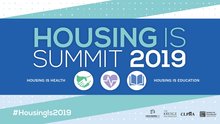
 Shared by Housing Is
on May 24, 2019
Shared by Housing Is
on May 24, 2019

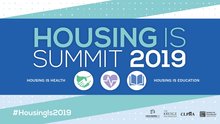
 Shared by Housing Is
on May 24, 2019
Shared by Housing Is
on May 24, 2019

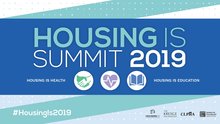
 Shared by Housing Is
on May 24, 2019
Shared by Housing Is
on May 24, 2019

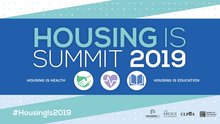
 Shared by Housing Is
on May 24, 2019
Shared by Housing Is
on May 24, 2019


 Shared by Housing Is
on May 24, 2019
Shared by Housing Is
on May 24, 2019
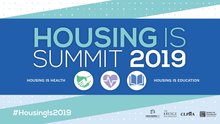
 Shared by Housing Is
on May 24, 2019
Shared by Housing Is
on May 24, 2019

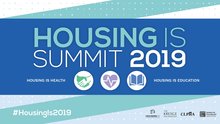
 Shared by Housing Is
on May 24, 2019
Shared by Housing Is
on May 24, 2019

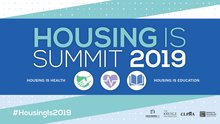
 Shared by Housing Is
on May 24, 2019
Shared by Housing Is
on May 24, 2019

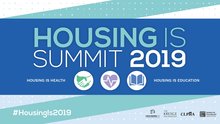
 Shared by Housing Is
on May 24, 2019
Shared by Housing Is
on May 24, 2019

 Shared by Housing Is
on May 23, 2019
Shared by Housing Is
on May 23, 2019

 Shared by Housing Is
on May 21, 2019
Shared by Housing Is
on May 21, 2019

 Shared by Housing Is
on May 21, 2019
Shared by Housing Is
on May 21, 2019
 Shared by Housing Is
on May 20, 2019
Shared by Housing Is
on May 20, 2019
 Shared by Housing Is
on May 13, 2019
Shared by Housing Is
on May 13, 2019
 Shared by Housing Is
on May 13, 2019
Shared by Housing Is
on May 13, 2019

 Shared by Housing Is
on Apr 30, 2019
Shared by Housing Is
on Apr 30, 2019
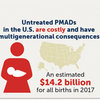
 Shared by Housing Is
on Apr 29, 2019
Shared by Housing Is
on Apr 29, 2019
 Shared by Housing Is
on Apr 25, 2019
Shared by Housing Is
on Apr 25, 2019
 Shared by Housing Is
on Apr 23, 2019
Shared by Housing Is
on Apr 23, 2019
 Shared by Housing Is
on Apr 23, 2019
Shared by Housing Is
on Apr 23, 2019




